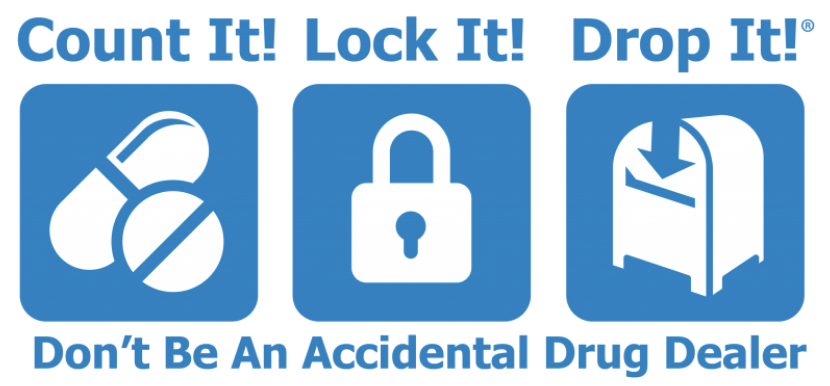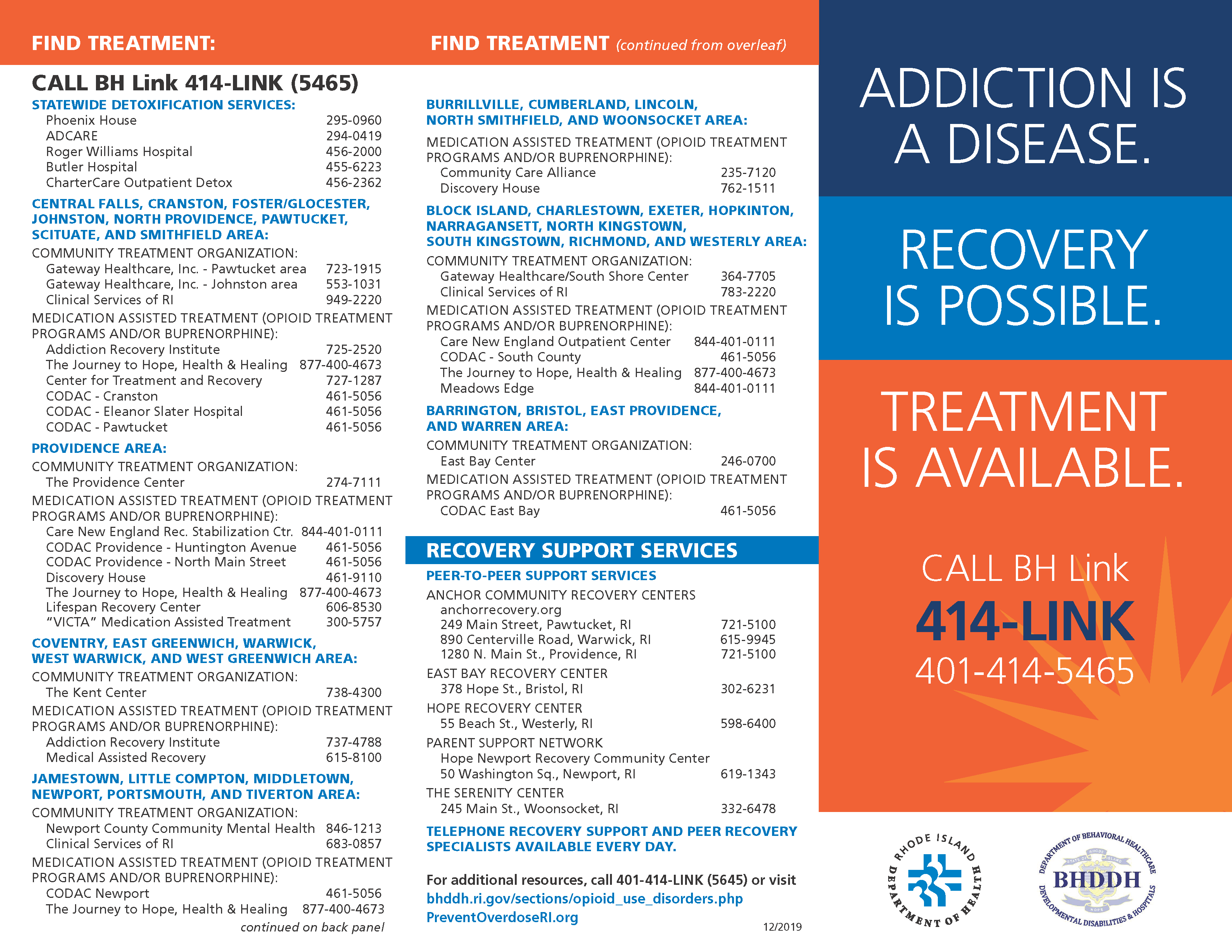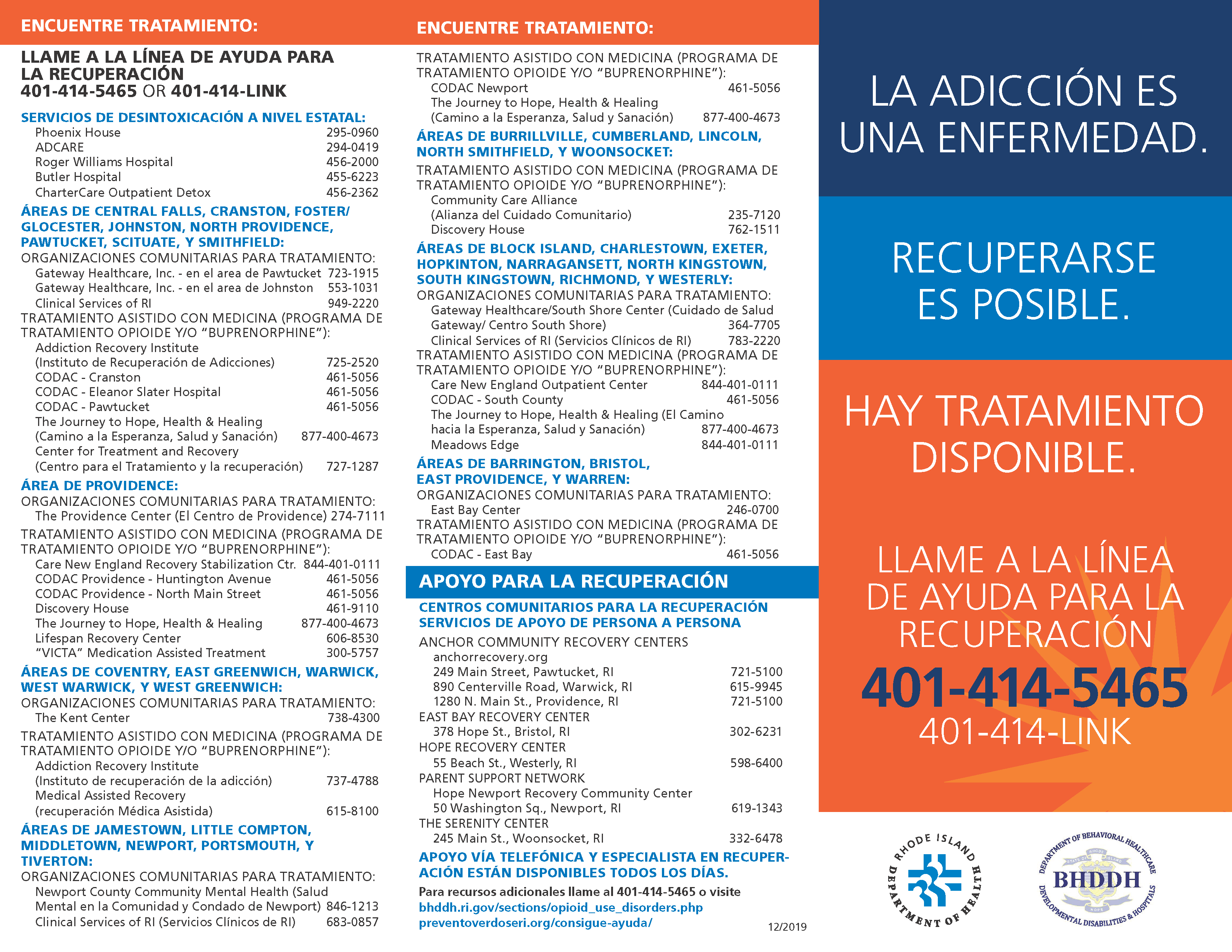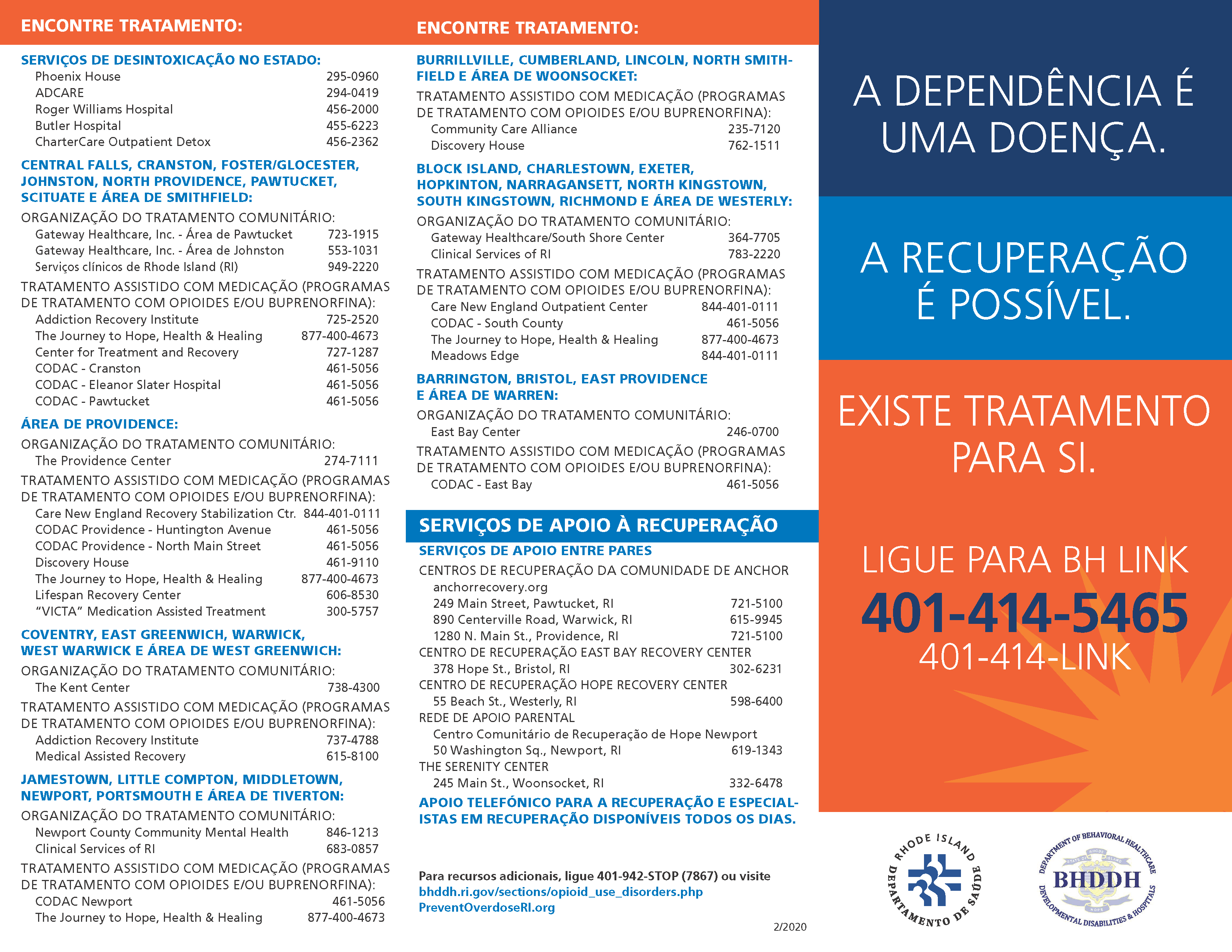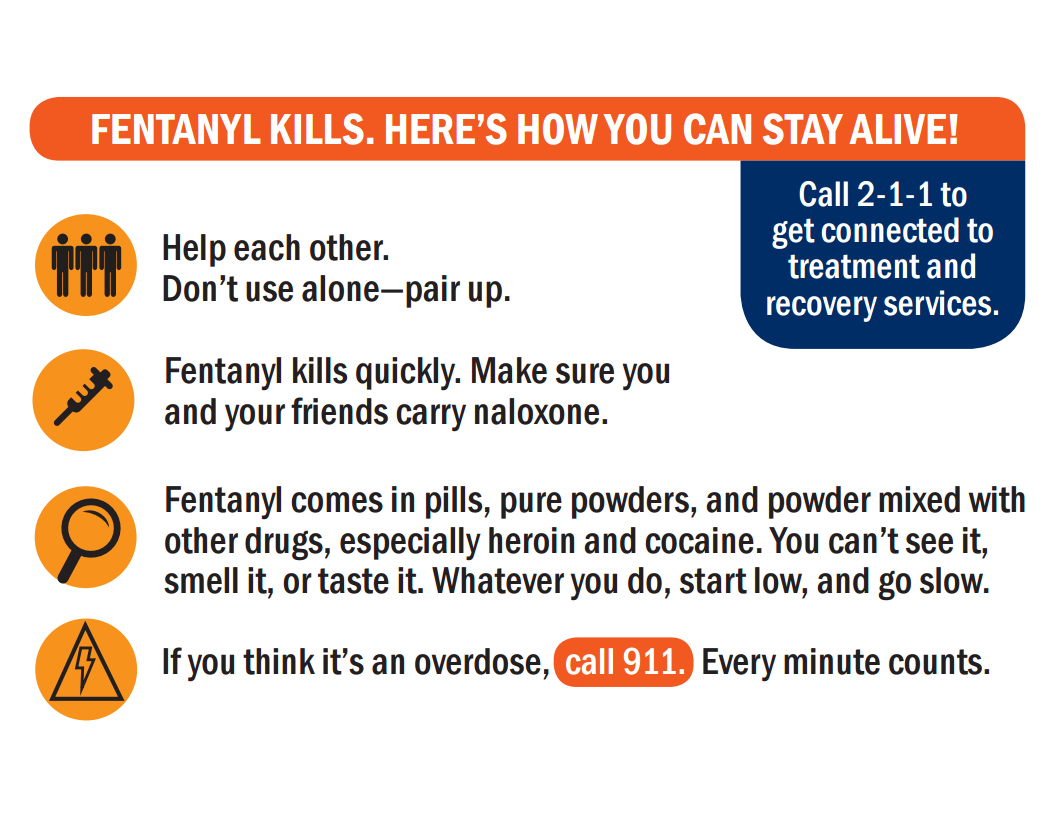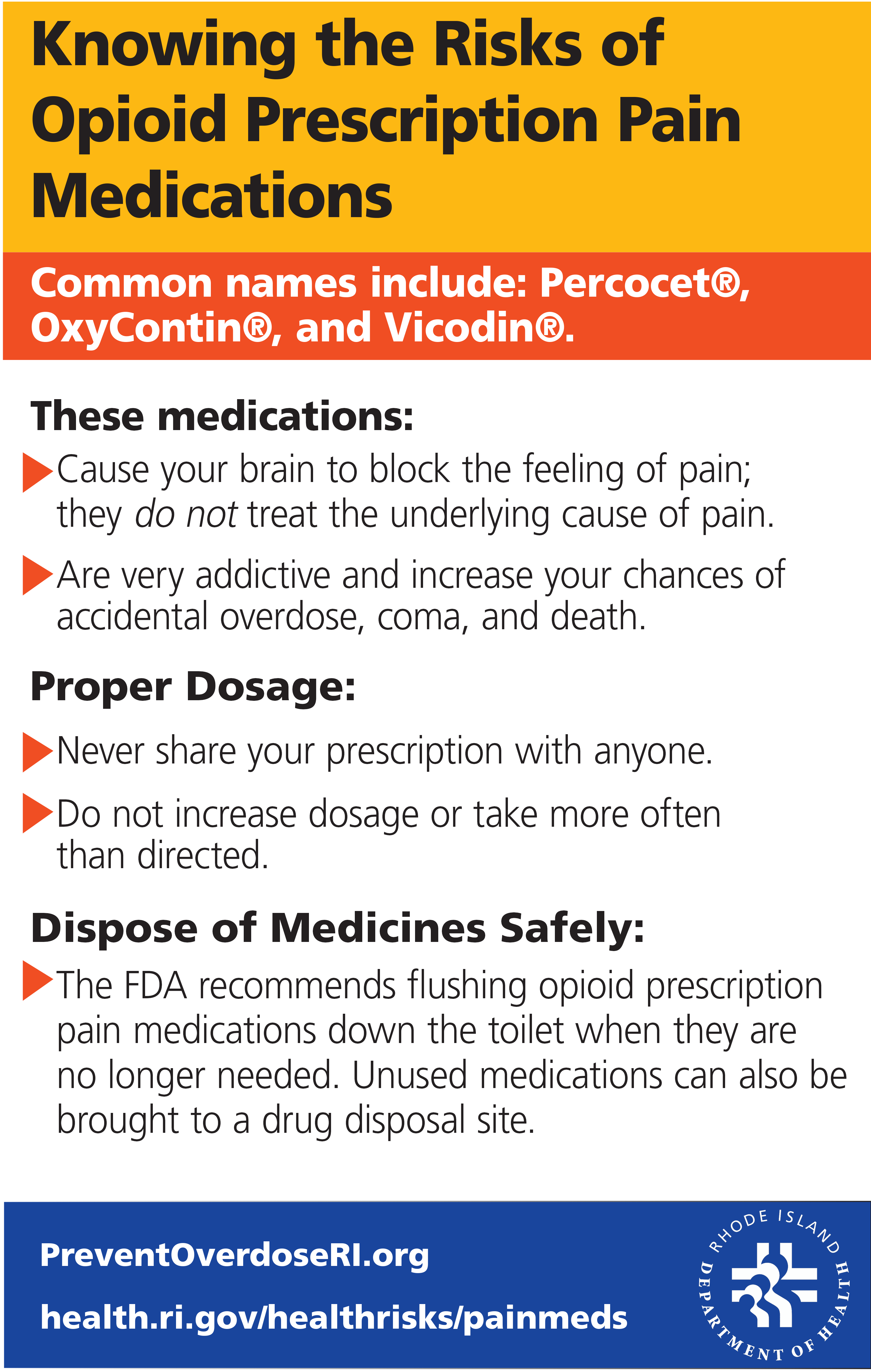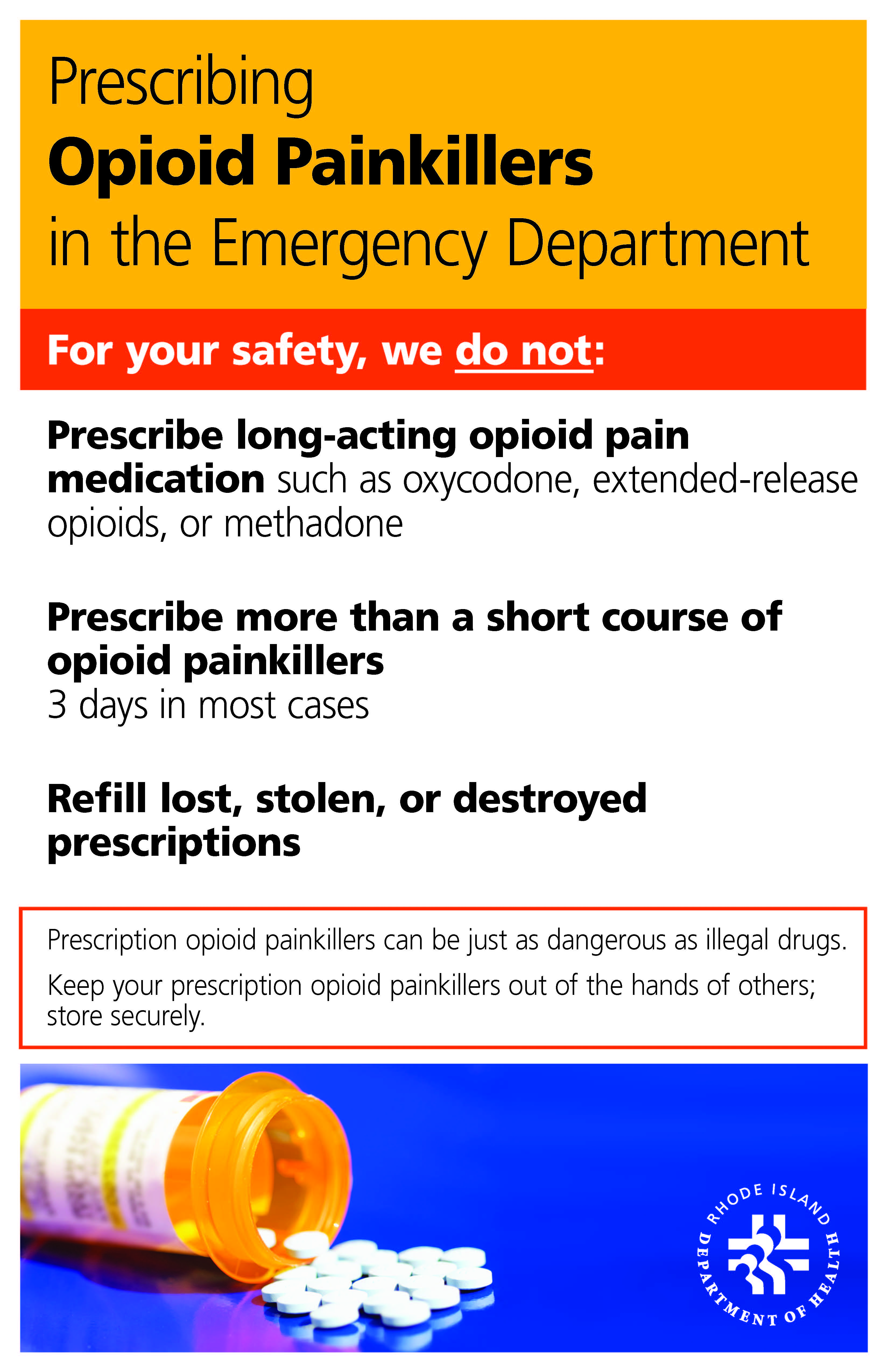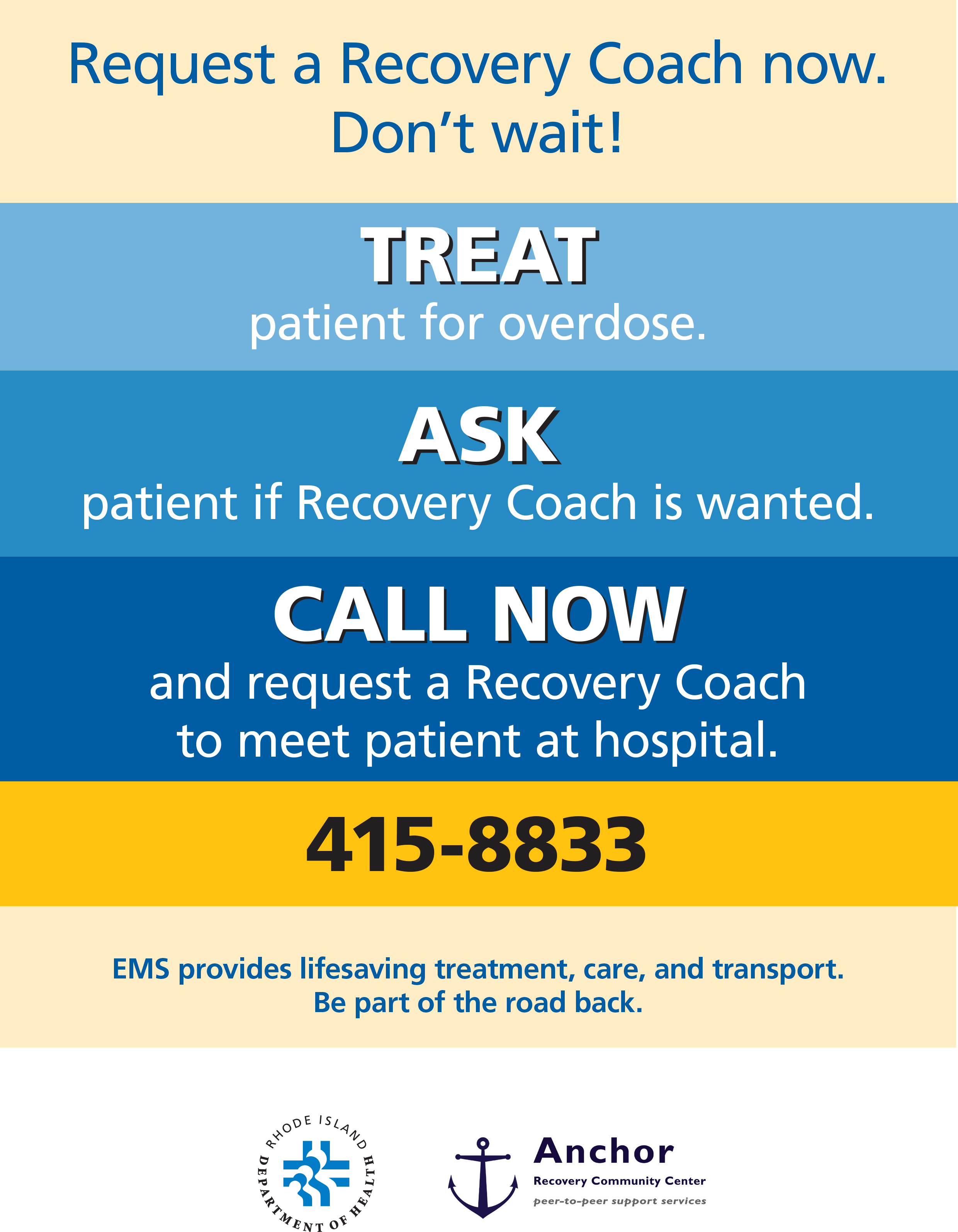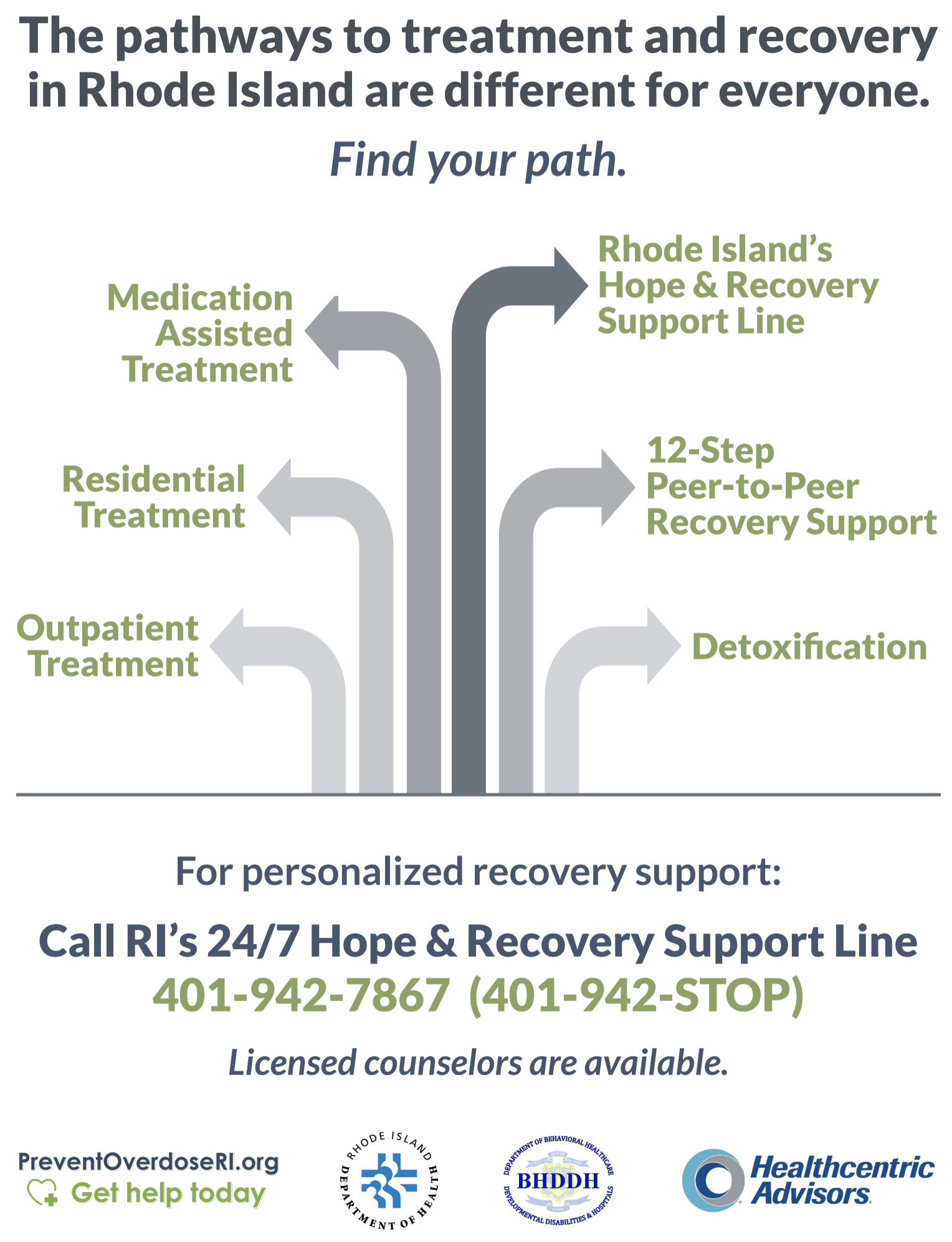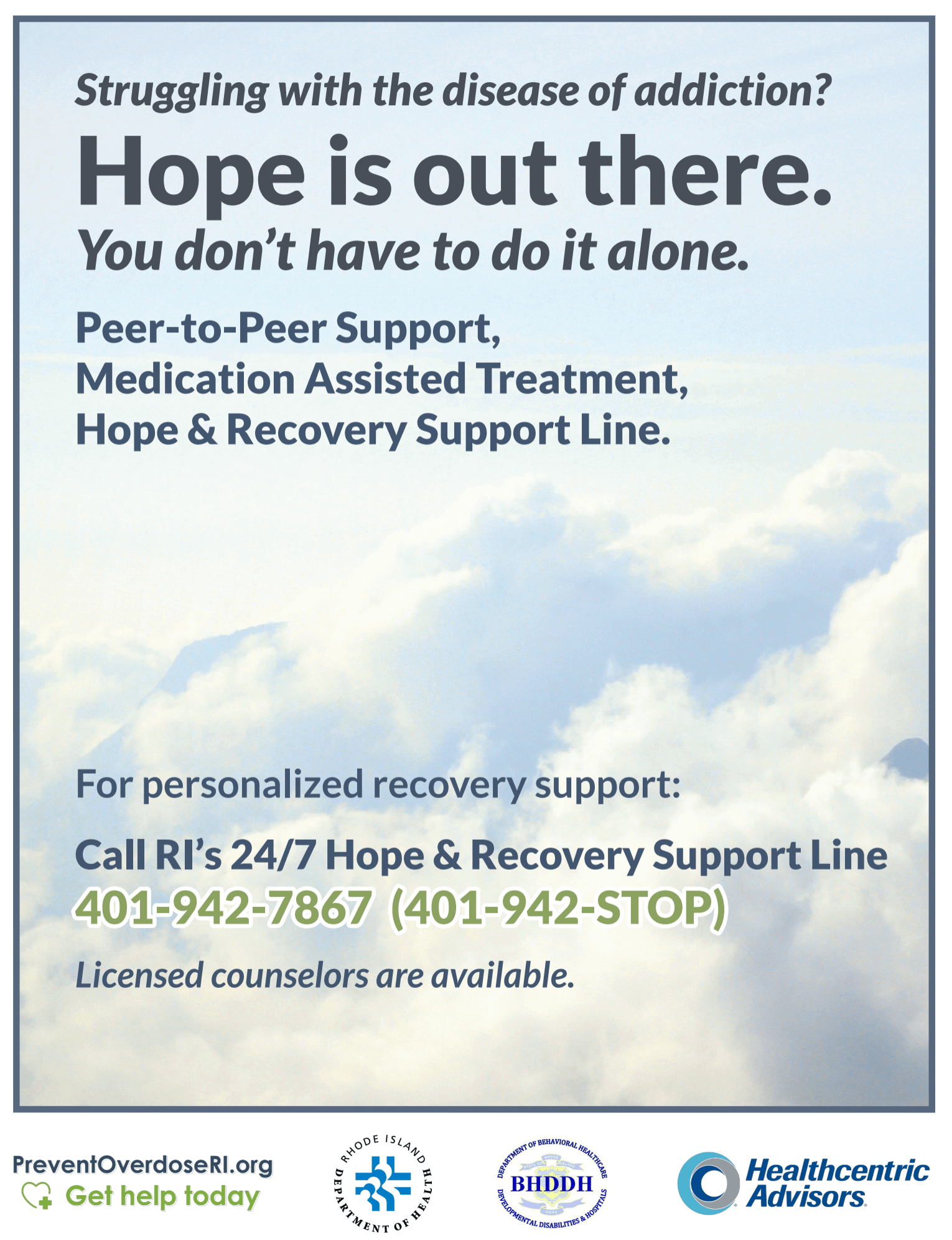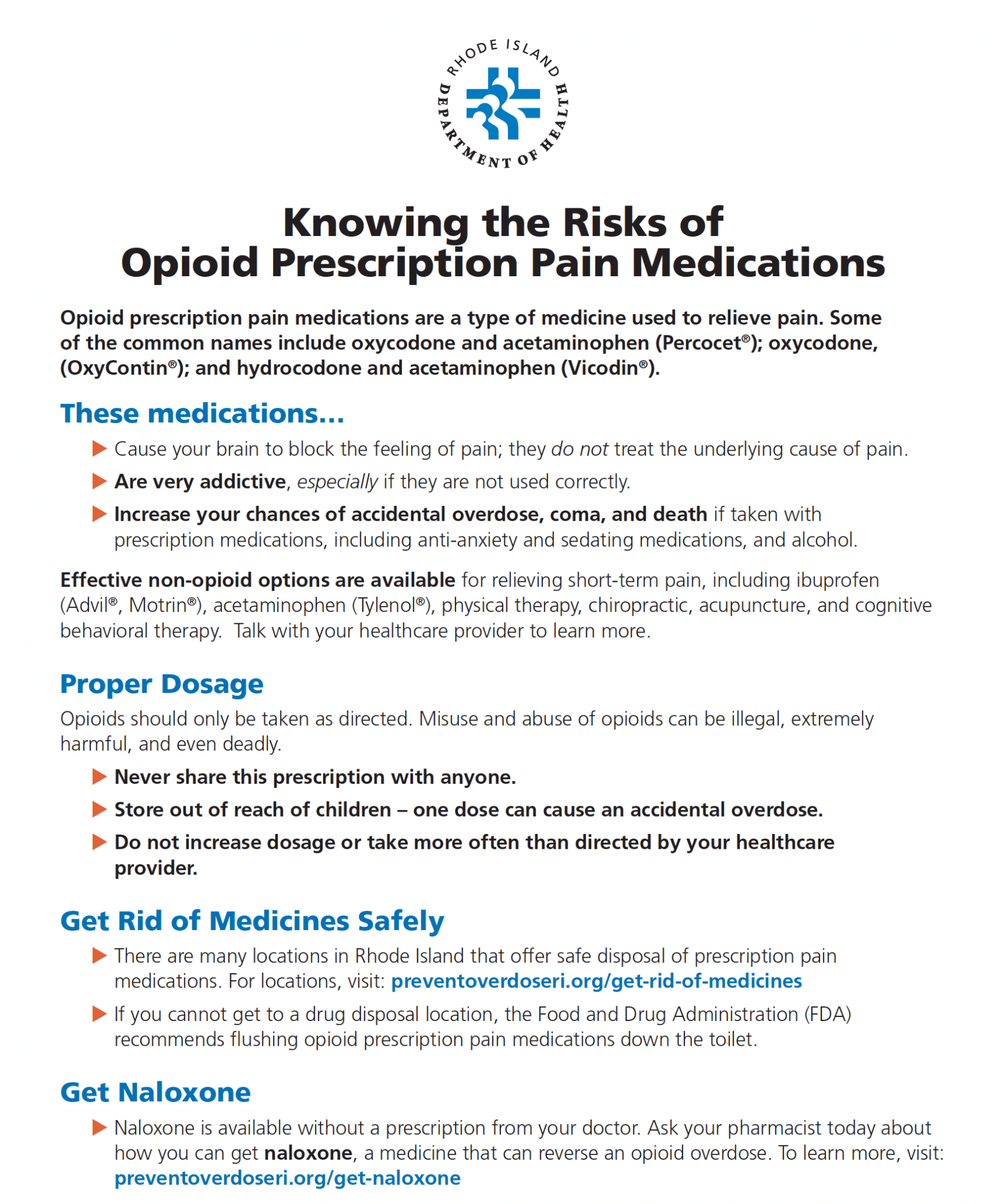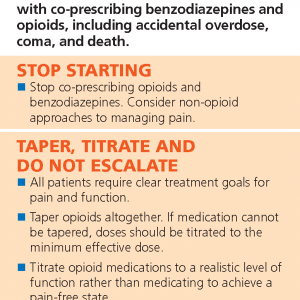Learn more about our resources for Rhode Islanders
New resources on Coronavirus (COVID19):
- COVID19 Safer Drug Use courtesy of harmreduction.org
- COVID19 Harm Reduction Providers courtesy of harmreduction.org
Knowing the Risks of Opioid Prescription Pain Medications
The Rhode Island Department of Health (RIDOH) produced this patient education video to inform patients and caregivers about the serious risks of opioid prescriptions. Learn about non-opioid pain treatment options, safe storage/disposal of opioids, and more. Learn more about opioids.
Safely Dispose of Unused Medications
Learn more about where you can dispose of medications safely.
Learn about Katie and Anthony’s stories
Healthcentric Advisors created two videos to show how Rhode Islanders who have struggled with opioid addiction have used treatment and recovery support services offered in the state.
Learn about BH Link, a new crisis intervention program
BH Link is a new program intended to serve people over 18 who are experiencing behavioral health crises, like mental health and/or substance use. This program includes the BH Link Triage Center: a 24/7 community-based walk-in/drop-off facility where clinicians connect people to immediate, stabilizing emergency behavioral health services, and long-term care and recovery supports. Click here to find more resources at BH Link.
Connect people to treatment in Rhode Island
Our state is working hard to help people find treatment options when they need it most. Download the resource list to learn about treatment options or call our Hope and Recovery line 988 Lifeline to talk to a licensed counselor, 24 hours a day. Click here for details.
Learn about the dangers of fentanyl
Fentanyl is much more powerful than heroin, so overdoses happen faster and are harder to stop. You probably need more than one naloxone kit to reverse a Fentanyl overdose. Every minute counts, call 911 if you think it’s an overdose.
Learn more about the dangers of fentanyl.
Know the risks of prescription opioids
Prescription painkillers, such as OxyContin, Vicodin, and Percocet, can be used safely to manage pain. But they are very addictive — especially if they’re not used correctly. Learn more about opioids and see where you can get rid of medications safely.
Safely prescribe painkillers
This poster shows how our state is increasing patient safety by limiting the type and length of an opioid prescription given to patients at any Rhode Island Emergency Department.
Request a Recovery Coach
This flyer helps remind EMTs to call for a recovery coach on the way to the hospital if someone has just overdosed. Print and share this flyer.
Hope is out there, Find your path
You can use these posters to help your patients find the best pathways to their recovery. You can also learn more about where to get help for your patients.
Help patients know the risks of Opioid Pain Medications
You can help your patients learn about their opioid prescription by giving them our new education handout, “Knowing the Risks of Opioid Prescription Pain Medications.” This handout was developed for Rhode Islanders and it helps patients understand the possible dangers of an opioid prescription. This handout also has information about how to get rid of your medications safely and where you can get naloxone in our state.
Consider these guidelines when Co-Prescribing
You can help lower the health risks for your patients by considering non-opioid approaches to managing pain, especially for patients who are currently prescribed benzodiazepines. Download our handout for clinicians and learn more about RI Department of Health’s safe opioid prescribing guidelines.
Help your patients enroll in CurrentCare
CurrentCare is a free service developed for Rhode Islanders. It’s a system to increase communication between doctors and hospitals. CurrentCare can alert you if your patient is admitted to an emergency department. You can help your patients by visiting their website.
Count it! Lock it! Drop it!
Count it: Count your pills once every two weeks to make sure none are missing.
Lock it: Lock up your pills and store them somewhere others won’t look.
Drop it: Drop off any unused or expired pills at a drug disposal site.
Learn more about this campaign and use our map where you can find where you can dispose of medications safely.
